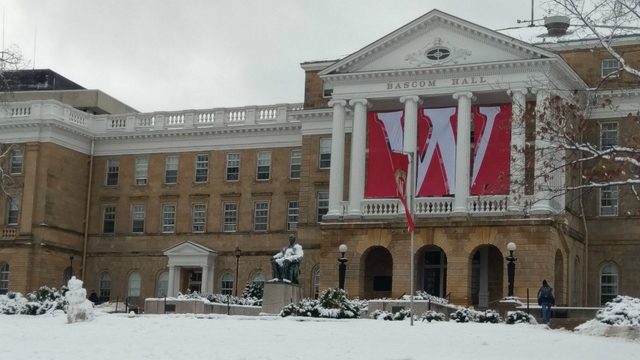On Tuesday, January 26th, the Associated Students of Madison Student Council voted unanimously in favor of legislation that would provide nearly $2 million of funding for students experiencing housing insecurity due to the pandemic, to be administered by ASM’s partner, the Tenant Resource Center (TRC).
However, the money will not be put to that use, at least for now, as University of Wisconsin officials have said the allocation violates UW System policy, which does not allow segregated fees to be used for student financial aid.
Emails obtained by Madison365 show ASM leadership inquiring with UW System staff last week whether or not the legislation would comply with UW System policy. In a response sent on Tuesday to ASM leadership, University of Wisconsin-Madison & Policy and Planning Analyst Anne Minssen noted that the references to system policy 820 in the legislation are “consistent with what the policy states regarding the mission of an institution how fees are assessed and collected.”
In the email, however, Minssen noted that her area of specialty is academics and student affairs, not fiscal policy.
Meanwhile, that same day, UW System General Counsel Quinn Williams wrote a memo addressed to UW-Madison Vice Chancellor for Legal Affairs Raymond Taffora declaring that “the Legislation and the proposed fund would be in express violation of UW System Administrative Policy 820.”
During the meeting, the council heard from their peer representatives and TRC leadership, as well as members of the public in an open forum.
ASM leadership has also expressed concerns regarding the various meetings with university officials, claiming that both Recreation & Wellbeing and Wisconsin Union leadership have been “lobbying” them for more money.
A University of Wisconsin representative disputed that characterization and said no such lobbying has taken place.
Shared Governance Campaign Director Kevin Jacobson refuted the claim that RecWell was in dire financial straits.
“The RecWell is in no need of emergency funds. I sit on their board, I have seen their budget documents, they are going to end the year with a positive reserve balance,” Jacobson said.
One of the sponsors of the legislation, ASM Chair Matthew Mitnick, emphasized why he think’s it’s necessary.
“I think it’s fiscally irresponsible, if you’re in a crisis, such as we are in right now, and you have a ton of money sitting, not going anywhere, that it should be used in a way that best impacts students, but particularly those who are being most impacted by COVID who are in need, who are not getting help with pre-existing methods.
“This is a way to guarantee housing justice for all,” he added.
Two other pieces of legislation were also passed, including demands to both extend deadlines regarding Pass/Fail courses and increase the accessibility of those courses as an option as well as the authorization for the creation of a Crisis Response Team to respond to mental health related calls to limit law enforcement engagement.
Robert Chappell contributed to this report.




























